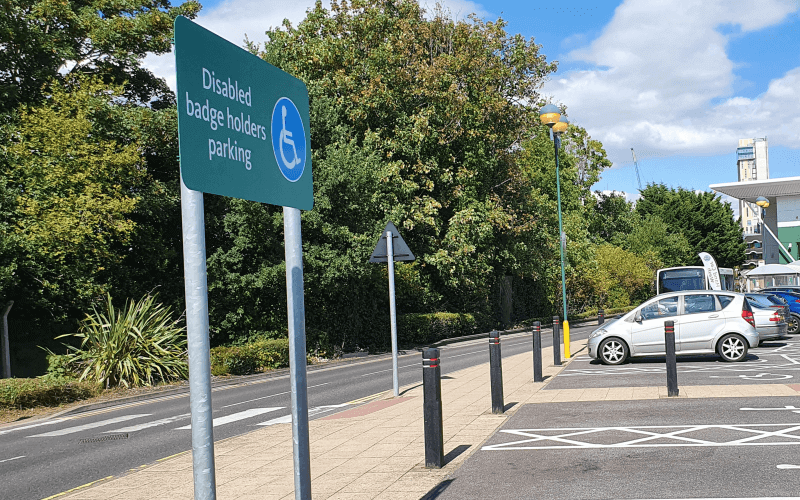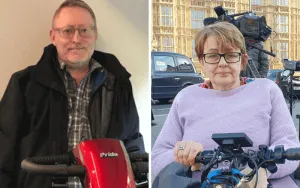At least 41 local authorities across England have unlawful policies that prevent autistic children from obtaining an assessment of their support needs, according to a new report.
The report (PDF) by Disability Law Service, Leeds University’s School of Law, the disability charity Cerebra and the BBC, says the councils are discriminating against autistic children by refusing an assessment unless they have another impairment or a formal diagnosis of autism.
Sir Ed Davey MP, acting leader of the Liberal Democrats and a patron of Disability Law Service, has written an open letter, which describes the policies as “unlawful, discriminatory and unacceptable” and calls on councils to review their policies and ensure they are clear and easily accessible.
The campaign has not yet named any individual local authority, but Sir Ed is to write to each of the 41 councils identified in the study to give them a chance to respond and amend their policies.
A coalition of nine disability organisations has called on the government to take urgent action to avoid a “looming employment crisis” among disabled young people.
In a joint letter, they warn that, because of the impact of the pandemic, disabled young people will be hit by the “double disadvantage” of discrimination and more competition for jobs, and the risk of long-term unemployment, when they try to move from education to employment, unless the government acts.
The coalition – led by National Deaf Children’s Society (NDCS) and including the disabled people’s organisation Disability Rights UK – wants to see the government make changes to its Plan for Jobs, which was released last month.
Among their recommendations, they want to see careers advisors trained to work with disabled people; online job searching made more accessible; and the £1,000 incentive for businesses taking on apprentices to be extended to all disabled young people, rather than just those with education, health and care plans.
NDCS estimates there are more than 500,000 disabled young people aged 16-25 in the UK.
A Citizen’s Advice survey has found that some disabled people are at least twice as likely to face redundancy as non-disabled people.
The survey of more than 6,000 people across the UK found that one in six (17 per cent) of the working-age population is facing redundancy.
But the proportion facing losing their jobs rises to 27 per cent for disabled people, and 37 per cent for disabled people whose impairment has a significant impact on their day-to-day life.
The proportion rises even higher for those who have been shielding, with half (48 per cent) of those who are clinically extremely vulnerable to COVID-19 at risk of redundancy.
Carers and parents (39 per cent) are also at sharply increased risk of redundancy, says Citizen’s Advice.
Jamie McGlynn, contact centre manager at Citizens Advice Manchester, said: “We’re seeing a lot of redundancy issues, but it gives you a sinking feeling when someone who’s been shielding, is a carer or has young kids tells you they’ve been picked as the first to go.
“People are absolutely wracked with worry. One lady with underlying health conditions told her employer she felt unsafe about returning to work as another worker had COVID symptoms but wasn’t isolating. The next week she had her redundancy notice through.”
A disabled women’s organisation has called for an abolition of care charges, an end to the “profit-making market” in social care, and the development instead of a system of free, flexible, high-quality support, with disabled people able to decide “what support we need and from whom”.
The call came in evidence submitted to the Commons health and social care select committee by WinVisible, which supports and campaigns for disabled women.
WinVisible made clear in its submission that it opposed “the integration of health and social care into one huge monolith which will make institutional life-and-death decisions over our heads”.
It added: “We are not objects to be placed wherever professionals dictate.
“We are continually fighting against institutions and uncaring professionals.
“The assumption that professionals know what’s best for us is patronising and discriminatory. We want to decide what support we need and from whom.”
The evidence was submitted as part of the committee’s inquiry into the social care funding needed over the next five years, shortages in the social care workforce, and the long-term reforms needed to social care funding.
A disabled motorists’ charity has launched its annual survey of the levels of abuse of accessible parking bays.
Disabled Motoring UK (DMUK) usually asks those taking part in its Baywatch surveys to visit supermarket carparks and count how many vehicles are parking in accessible bays without displaying a blue badge.
But this year, because of the pandemic crisis, DMUK is instead asking blue badge-holders to take part in an online survey during August, answering questions about their parking experiences at supermarkets and on “everyday journeys” over the last 12 months, and the impact of the pandemic on blue badge spaces.
DMUK will use the survey results to tackle supermarkets and other parking providers over their policies on parking for disabled people.
Baroness [Tanni] Grey-Thompson, who supports the campaign, said: “It’s so sad that Disabled Motoring UK has to run its Baywatch campaign.
“Disabled bay enforcement should be mandatory, especially for the big supermarkets that can afford to invest in policing their car parks.
“I see disabled parking abuse every day, it’s never a surprise to me, including at my local supermarket.
“There is a real lack of understanding about how essential these bays are to disabled people and I applaud DMUK’s Baywatch campaign as it plays a vital role in highlighting the issue of disabled parking abuse at supermarkets.”
A note from the editor:
Please consider making a voluntary financial contribution to support the work of DNS and allow it to continue producing independent, carefully-researched news stories that focus on the lives and rights of disabled people and their user-led organisations.
Please do not contribute if you cannot afford to do so, and please note that DNS is not a charity. It is run and owned by disabled journalist John Pring and has been from its launch in April 2009.
Thank you for anything you can do to support the work of DNS…

 Air travel accessibility report could lead to ‘tangible’ improvements, but progress depends on industry
Air travel accessibility report could lead to ‘tangible’ improvements, but progress depends on industry Disabled people receiving care were ‘ignored by design’ during the pandemic, Covid inquiry hears
Disabled people receiving care were ‘ignored by design’ during the pandemic, Covid inquiry hears Disabled peers plan to ‘amend, amend, amend, amend, amend’ after assisted dying bill reaches Lords
Disabled peers plan to ‘amend, amend, amend, amend, amend’ after assisted dying bill reaches Lords